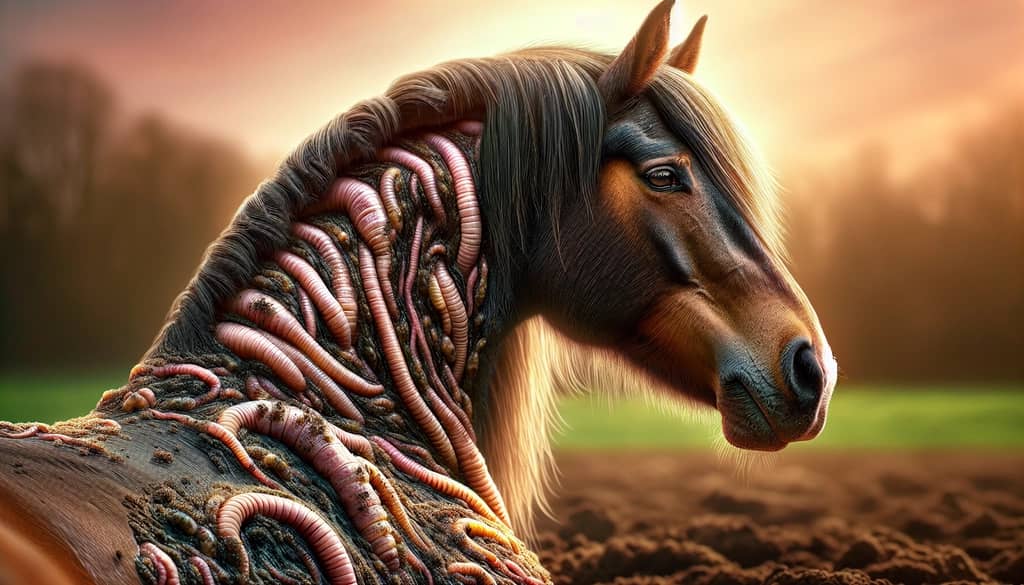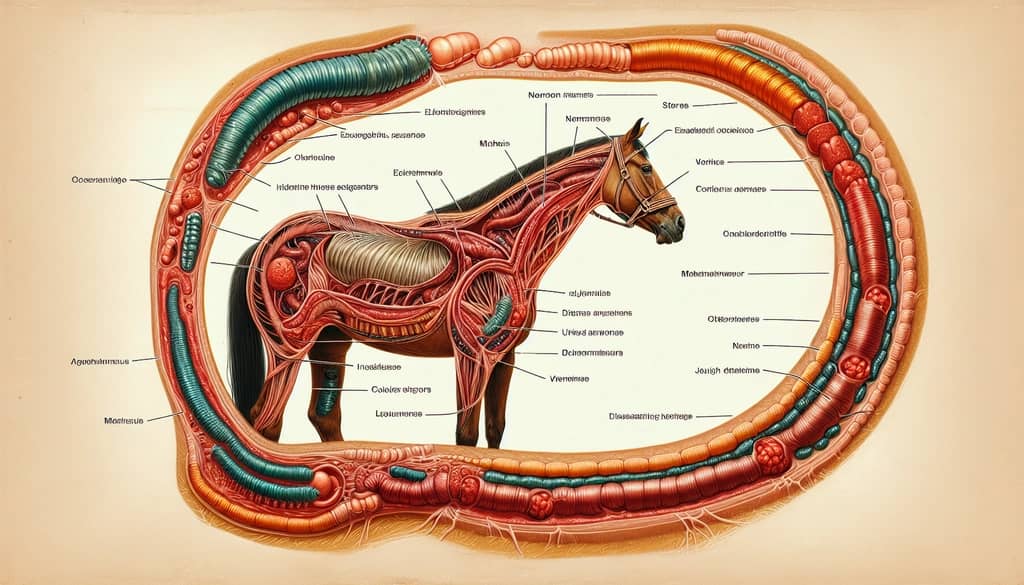Updated on: 6/3/2025
Keeping Your Horse Healthy: Managing Neck Threadworms

Introduction
When it comes to equine health, staying informed about potential challenges is key to ensuring your horse's well-being. One issue that horse owners may encounter is neck threadworms in horses. In this article, you'll learn how to identify, treat, and prevent these parasites, and how to maintain overall equine health.
Identifying Neck Threadworms

- Appearance: Neck threadworms are microscopic, making them invisible to the naked eye. They're nematodes that live beneath the skin and can cause irritation.
- Symptoms: You may notice intense itching, skin irritation, and lumps on your horse's neck and along the mane. These symptoms can lead to secondary infections if not addressed.
- Behavioral Changes: Your horse might show signs of discomfort, such as excessive rubbing against objects or changes in temperament.
Quick Tips: Regularly inspect your horse's neck and mane for skin changes and monitor their behavior closely.
Treatment Options

- Topical Treatments: Anti-inflammatory creams can help reduce itching and irritation. Apply as instructed by a veterinarian.
- Deworming Procedures: A strategic deworming plan is crucial. This often involves ivermectin-based products, which are effective against neck threadworms. It's best to consult your veterinarian to develop a tailored deworming schedule.
- Veterinary Assistance: Always consult with a vet if you suspect neck threadworms. They can provide a precise diagnosis and treatment plan.
Fast Facts: According to equine health specialists, regular deworming and parasite control can significantly reduce the risk of neck threadworm infestations.
Preventive Measures

- Regular Grooming: Consistent grooming helps you notice changes in the horse's skin and coat, allowing for early intervention.
- Environmental Control: Keep your horse's environment clean to minimize the risk of parasites. Control stable flies and keep bedding fresh.
- Diet and Supplements: Ensure a balanced diet rich in minerals and vitamins to support a strong immune system.
Quick Tips: Incorporate regular vet check-ups into your horse care routine to catch and address potential issues early.
Key Takeaways
- Monitor your horse for any symptoms such as itching or skin changes.
- Consult with your veterinarian for accurate diagnosis and an effective treatment plan.
- Make grooming and regular vet check-ups a part of your horse care routine to prevent infestations.
With these strategies, you can enhance your equine health care practices and keep your horse happy and healthy. Remember, tackling neck threadworms promptly not only alleviates discomfort for your horse but also supports their overall well-being. Try these tips next time your horse shows signs of neck irritation!